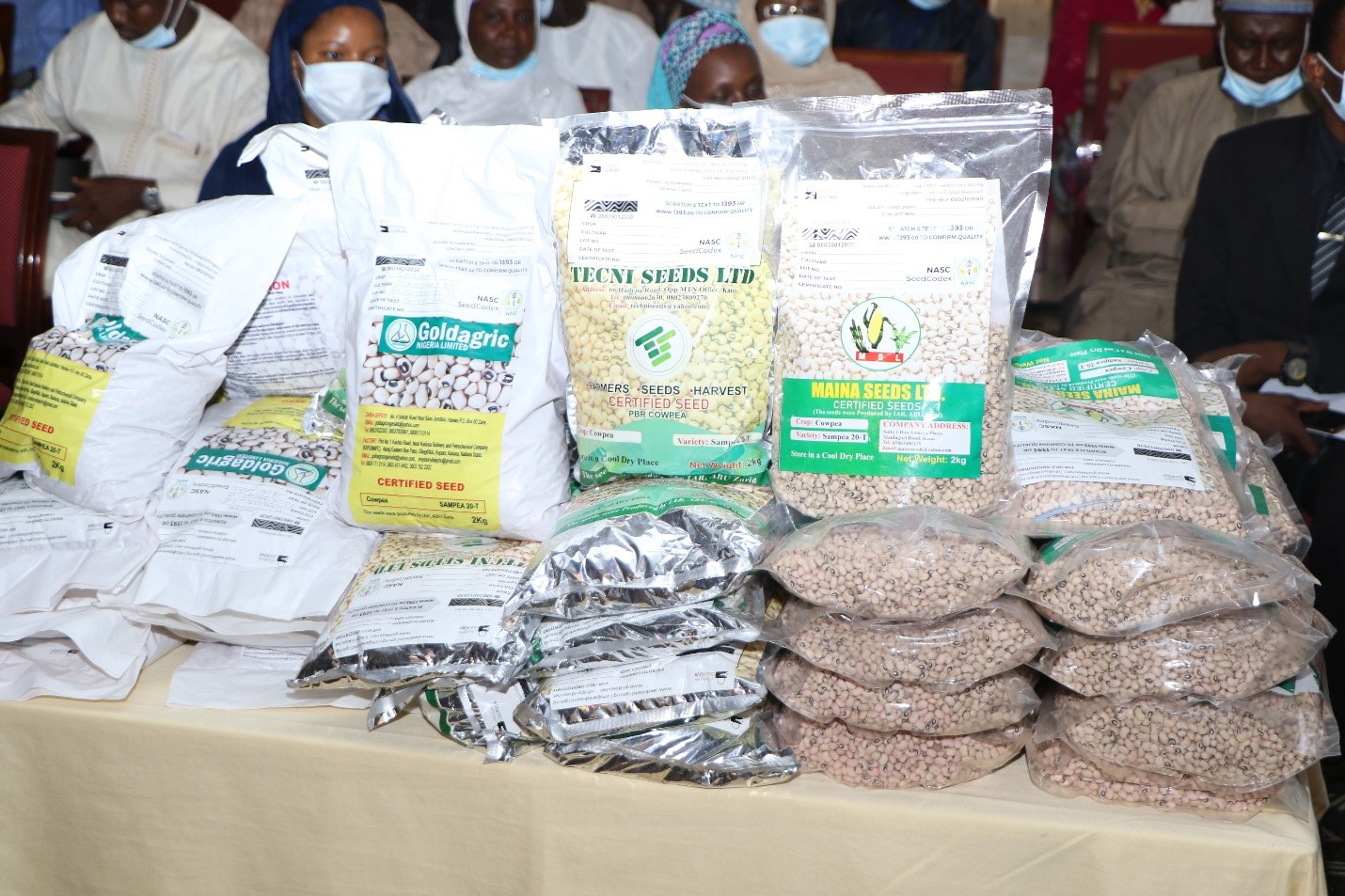“I am happy to be here today and I am so excited. I started working on this product in 2011 and, since then, I have been involved in the laboratory, field, commercialisation processes and I was happy last year when I visited the farmers and saw the joy on their faces. Beyond that, today is my greatest day because it will be my first time testing this product. “So, realising that there are five different delicacies of beans, I am so excited. My colleagues, friends from Ghana and fellow Nigerians, today is a great day and we are here; we have seen, heard and believed but, today, we are eating,” said African Agricultural Technology Foundation (AATF), West Africa representative, Dr. Francis Onyekachi.
Onyekachi, who was the programme officer for the Pod Borer Resistant (PBR) Cowpea and, later, the stewardship manager, made this statement during the ‘Eating is Believing – biotech beans’ advocacy programme organised by the Open Forum on Agricultural Biotechnology (OFAB) under the umbrella of the National Biotechnology Development Agency (NABDA) and its partners in Abuja.
The event, the second in the series, had present biotechnology stakeholders from various cross-cutting ministries, departments and agencies of government (MDAs), private sector representation as well as a high-powered delegation of biotechnology/biosafety team members from Ghana. The plant breeder expressed the belief that the newly commercialised PBR cowpea will add to Nigeria’s food security drive and reduce the massive capital flight from the nation and fill up the 500,000 tons annual cowpea deficit. Speaking to journalists, a consumer, Ms Winifred Adejo, said she could not differentiate between the PBR and conventional cowpea delicacies served at the event, saying they tasted the same. “The taste is natural and it’s impossible to tell which one is genetically modified and which is not,’’ Adejo said.
Participants were treated to various delicacies made from the cowpea, including ‘akara’, ‘moi moi’, ‘ewa’, rice and beans, porridge beans etc. In his keynote address, the NABDA director-general, Prof. Abdullahi Mustapha, said the PBR Cowpea is a classic example of how technology can provide solutions to one of the major challenges confronting cowpea farming. “Biotechnology has proven its potential to help us overcome agricultural productivity challenges, leading to more yield (e.g., 2.9 tonnes/hectare of Bt cowpea from 350kg of non-Bt cowpea) and addressing various breeding limitations that conventional breeding methods cannot address,” he said.
According to him, biotechnology is a cutting-edge technology of the 21st Century that has proven worldwide to enhance productivity, reduce drudgery and increase yields and brought about enhancement of food security in agriculture and economic growth.
“Farmers in African countries cannot attain the yield potentials of our popular legumes when compared to other parts of the world. While farmers in the Americas, West and Asia are getting over 10 tonnes per hectare for maize, our farmers are still struggling to attain 4 tonnes per hectare.
“The place of science, technology and innovation in our quest for development in all sectors of the economy cannot be overemphasised. The feat attained with the development and commercialisation of the PBR Cowpea has proved again that, if determined, Africa has what it takes to solve her challenges. Remember, this is about food and nutritional security, the well-being of our farmers, improved income and less use of chemical sprays for environmental sustainability,” he added.
Earlier in her remarks, the country coordinator, OFAB, Nigeria chapter, Dr. Rose Gidado, explained that the PBR Cowpea mobile kitchen campaign, christened ‘Eating is Believing’, is an advocacy campaign meant to demonstrate the safety and nutrition effects of Bt Cowpea, as well as increase consumer awareness on Bt cowpea and food products.
According to her, the campaign will serve as a resource that promotes and supports the consumption of this brand of cowpea.
“Additionally, FAS Lagos plans to incorporate the campaign into a prospective USDA McGovern-Dole school feeding programme across Nigeria. This action will help leverage links between smallholder cowpea farmers and local schools. The campaign will provide assured markets for diverse cowpea food products,” she stated.
Gidado listed the campaign objectives to include assuring consumers of the safety of the PBR cowpea, increasing market and consumer acceptance, increasing stakeholders (especially smallholder farmers’ awareness of the benefits of PBR cowpea) and increasing the number of champions promoting the planting of Bt Cowpea across Nigeria.
This article was written by Nkechi Isaac for the Science Nigeria.




















































































